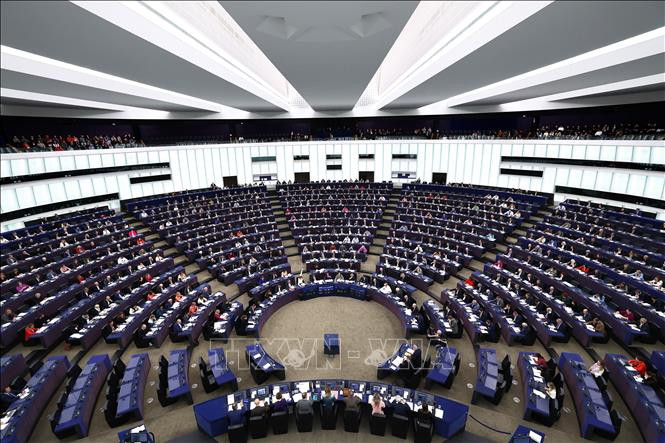On June 7, political parties in Germany held their final campaign events before the European Parliament (EP) elections held in the country on June 9.

In a speech at a campaign event for the Left Party Die Link in Potsdam, party co-leader Martin Schirdewan said voters would decide the direction of the European Union (EU) at this historic moment in its history. Mr Schirdewan, who is also the leader of the Left in the European Parliament, said voters would decide whether the conservative Christian Democratic Union (CDU) and its “traffic light coalition” would continue to shape European politics with austerity policies. He stressed that whether the far right “continues to grow stronger depends on the votes of the voters themselves”.
Former German left-wing party leader Gregor Gysi also warned of the possibility of a “right-wing, nationalist and racist” majority in the EP. According to him, far-right parties across the EU are expected to make significant gains in the EP elections, which end on June 9.
On the same day, European Commission President Ursula von der Leyen, from the CDU, and center-right party leader Friedrich Merz traveled to Munich for a final campaign event. Speaking at a rally to end the campaign of the Christian Democratic Union/Christian Social Union (CDU/CSU) in the southern German state of Bavaria on the evening of June 7, von der Leyen said that “Europe today is a great gift,” but added that the EU was facing unprecedented challenges from “populists, extremists and demagogues,” accusing these forces of seeking to weaken and destroy Europe. She pledged that she would “not allow that to happen.”
Meanwhile, speaking at an election event in Cologne, German Foreign Minister Annalena Baerbock, a leading member of the Green party, praised the EU as “an alliance that guarantees peace and freedom”, built on trust.
Green Party co-chair Ricarda Lang said that opinion polls for the Dutch election showed that the coalition of social democratic and green parties was doing better than the far right. This showed the chance to defeat the extreme right and the populist wave.
However, some analysts say this year's European elections are expected to see a major shift to the right in many countries, with far-right populist parties likely to win more votes and seats in European parliaments. According to DW journalist Jack Parrock, preliminary polls have shown a strong increase in right-wing parties in the upcoming elections. According to the results of a poll on the sidelines of the Dutch election on June 6, the far-right Freedom Party of Geert Wilders rose to second place behind the Labor/Greens coalition, a trend that could be repeated in other EU countries.
The European Parliament is elected every five years. The first European elections were held in 1979 and are the largest cross-national elections in the world.
In Germany, more than 66 million EU citizens are eligible to vote. In Germany, Belgium, Malta and Austria, EU citizens aged 16 and over can vote, while in Greece and 18 other member states the minimum age to vote is 17.